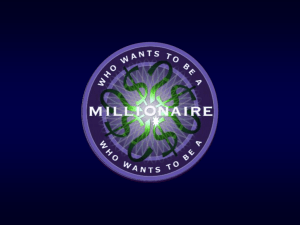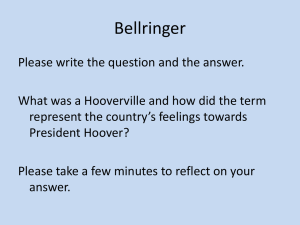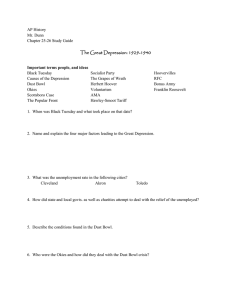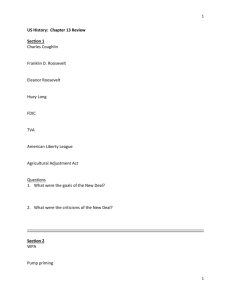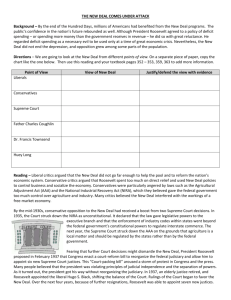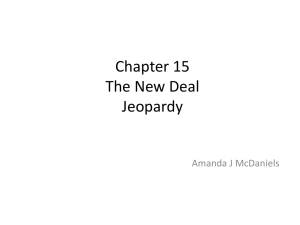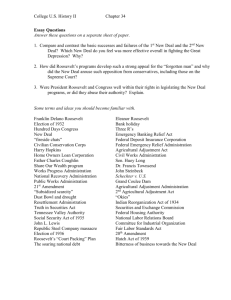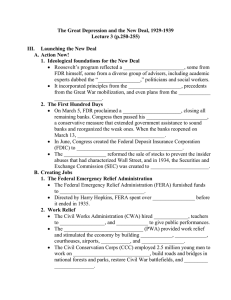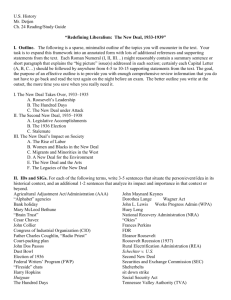Questions for the Great Depression
advertisement
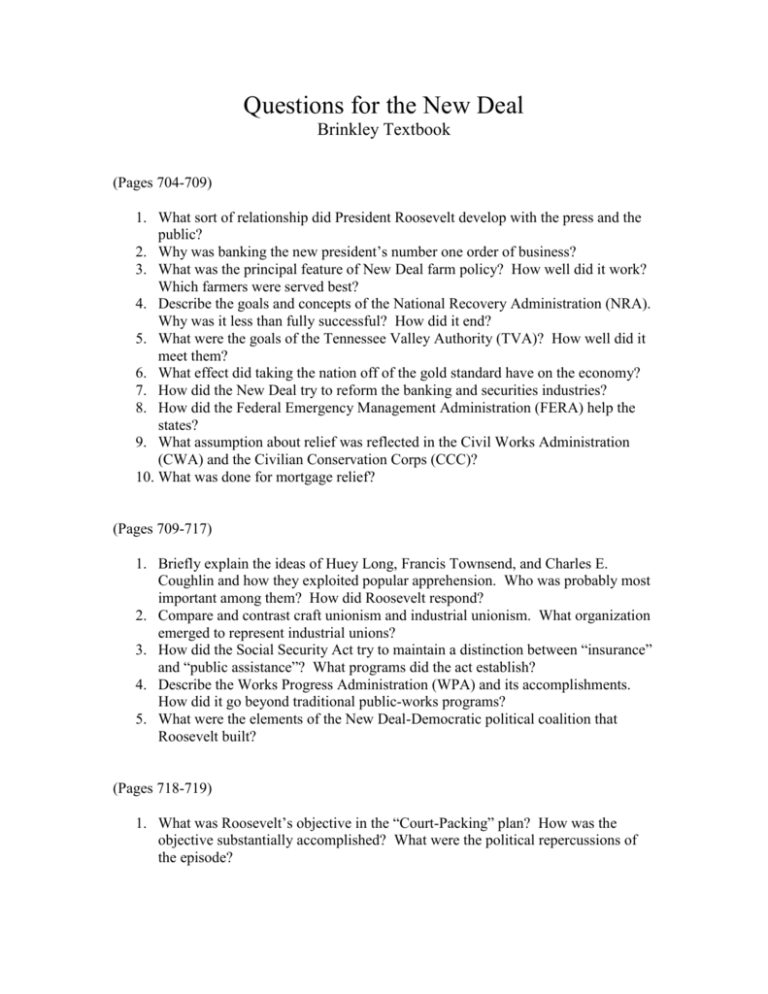
Questions for the New Deal Brinkley Textbook (Pages 704-709) 1. What sort of relationship did President Roosevelt develop with the press and the public? 2. Why was banking the new president’s number one order of business? 3. What was the principal feature of New Deal farm policy? How well did it work? Which farmers were served best? 4. Describe the goals and concepts of the National Recovery Administration (NRA). Why was it less than fully successful? How did it end? 5. What were the goals of the Tennessee Valley Authority (TVA)? How well did it meet them? 6. What effect did taking the nation off of the gold standard have on the economy? 7. How did the New Deal try to reform the banking and securities industries? 8. How did the Federal Emergency Management Administration (FERA) help the states? 9. What assumption about relief was reflected in the Civil Works Administration (CWA) and the Civilian Conservation Corps (CCC)? 10. What was done for mortgage relief? (Pages 709-717) 1. Briefly explain the ideas of Huey Long, Francis Townsend, and Charles E. Coughlin and how they exploited popular apprehension. Who was probably most important among them? How did Roosevelt respond? 2. Compare and contrast craft unionism and industrial unionism. What organization emerged to represent industrial unions? 3. How did the Social Security Act try to maintain a distinction between “insurance” and “public assistance”? What programs did the act establish? 4. Describe the Works Progress Administration (WPA) and its accomplishments. How did it go beyond traditional public-works programs? 5. What were the elements of the New Deal-Democratic political coalition that Roosevelt built? (Pages 718-719) 1. What was Roosevelt’s objective in the “Court-Packing” plan? How was the objective substantially accomplished? What were the political repercussions of the episode? 2. What seems to have been the main cause of the 1937 recession? What economic theory appeared to have been supported by the recession and the administration’s response to it? (Pages 719-725) 1. What is meant by “broker-state”? How did the New Deal create it? 2. What did the New Deal offer to black Americans? What role did Eleanor Roosevelt play and what political change resulted? 3. Why was the New Deal’s impact greater in the West? (Page 716-717) 1. What did the popularity of superheroes, particularly Superman, reveal about American culture in the late 1930’s and early 1940’s? Vocabulary Fireside Chats Bank Holiday 21st Amendment John L. Lewis Keynesian Economics Marian Anderson Black Cabinet Frances Perkins Huey Long John Maynard Keynes Okies Mary McLeod Bethune Indian Reorganization Act Social Security Act 1st New Deal First 100 Days 3 R’s Brain Trust Schechter vs. U.S. 2nd New Deal Harry Hopkins Charles Coughlin Francis Townsend Dust Bowl John Steinbeck A. Philip Randolph WPA AAA REA NRA PWA TVA FDIC SEC FERA CWA CCC FHA NLRB NYA
